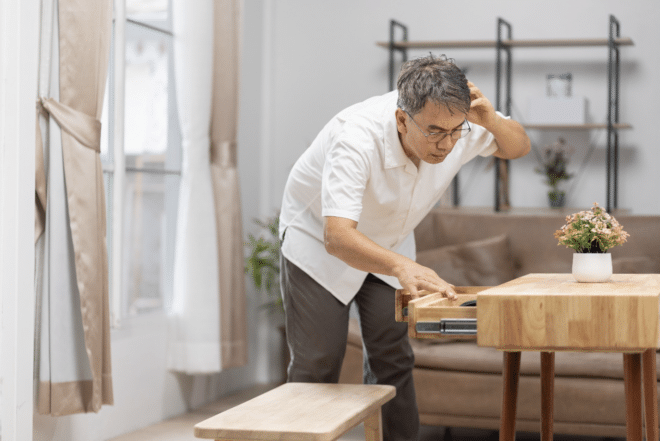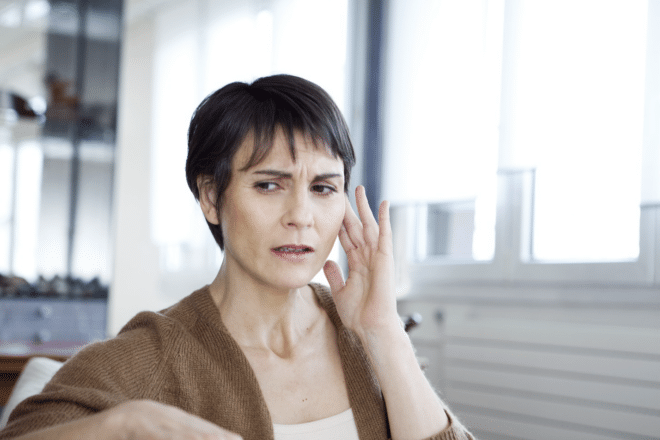Effectively Preventing Hearing Loss for Patients in Philadelphia, PA
Many patients wonder if noise-canceling headphones are an effective way to reduce the risk of hearing loss. While they can reduce noise exposure, it’s important to understand how effectively noise-canceling headphones safeguard your hearing health and what factors influence their performance. Your ears are sensitive, with 100 decibels of sound causing permanent damage after just 15 minutes of exposure.
Below, the hearing care providers at Main Line Audiology explain how noise-canceling headphones work, whether they provide adequate hearing protection, and other ways to safeguard your hearing in Philadelphia, PA and the surrounding areas, including Jenkintown and Audubon. Contact us today to learn more about what causes hearing loss and how you can properly protect your ears in various noisy environments with our assistance.
How Do Noise-Canceling Headphones Work?
Noise-canceling headphones are equipped with active noise cancellation (ANC) technology, which prevents background noise from reaching your ears. ANC significantly reduces the volume of external sound that reaches your ears by producing an ‘anti-noise’ signal. This signal is generated by microphones that detect background sound and cancel out anything the microphone picks up, effectively reducing the sound hitting your eardrums. While noise-canceling headphones can effectively reduce sound exposure, their effectiveness is dependent on several factors, including:
- How much sound intensity is reduced by the ANC technology
- The decibels of the sound you’re exposed to
- How well the noise-canceling headphones fit around your ears
- How different types of noise affect your specific hearing abilities
Passive Vs. Active Noise-Canceling
There are two types of noise-canceling headphones, each providing hearing protection in two very distinct ways:
- Passive Noise-Canceling (PNC) – With a heavy-duty design sealing your ears off from external sounds, they reduce your exposure to external sounds by drowning them out. They might feel heavy, but their tight fit protects from particularly explosive transient sounds, including fireworks and gunshots. They also help reduce exposure to high-frequency sounds, such as a crying baby or barking dog.
- Active Noise-Canceling (ANC) – The technology in these headphones “erases” external sounds by identifying the pitch. Whether you’re near the whir of a jet engine or a large gathering of people, they’re most effective where overall sound and volume remain constant.
Do They Provide Any Hearing Protection Support?
This question has no definite answer, and discussing your needs with your hearing care provider is important. Noise-canceling headphones provide a certain level of hearing protection when worn correctly, but they aren’t perfect at safeguarding your ears from noise-induced hearing loss. You can also damage your hearing by listening to music too loudly through your noise-canceling headphones, so it’s essential to know how to use them correctly. It’s important to remember:
- ANC noise-canceling headphones don’t protect your hearing from sudden, loud sounds.
- Noise-canceling headphones are not hearing protection devices, so you should always opt for custom hearing protection solutions provided by your hearing care professional.
- Wearing noise-canceling headphones can reduce your environmental awareness, so you must be mindful of your surroundings when wearing them.
Should I Get Passive or Active Noise-Canceling Headphones?
What are you trying to achieve by wearing noise-canceling headphones? If you want to shield your ears from sudden or high-frequency sounds, PNC headphones are your best bet. ANC headphones require some time to identify and match external sounds, so they can’t effectively protect you from fleeting sounds.
ANC headphones are an excellent option to help ward off the constant buzz of traffic or busy streets. You can also listen to music at lower volumes, allowing wearers to significantly reduce their risk of noise-induced hearing loss. However, if you’re looking exclusively for ear protection, you might benefit from using protective earmuffs.
Other Ways to Safeguard Your Hearing
Understanding the causes of hearing loss is the first step in preventing it. You can also safeguard your hearing by:
- Scheduling a Comprehensive Hearing Evaluation – Hearing loss usually happens gradually over time, and many people don’t realize it’s happening until they’re diagnosed. Our brains adapt well to hearing loss, so scheduling regular hearing tests conducted by a hearing care provider will track your progress over time and allow them to adjust your treatment plan accordingly.
- Turn Down the Volume – Whether listening to music, the television, or someone talking on the phone, lowering the volume is an easy way to reduce your risk of noise-induced hearing loss.
- Keep Things Out of Your Ears – Your ears are extremely sensitive. Nothing should be inserted into your ear canal. Using cotton swabs to clean the inside of your ears can push ear wax further into the canal and against your eardrum, which can cause conductive hearing loss or a punctured eardrum.
- Use Custom Hearing Protection – You might not realize how damaging the sounds around you are until you’re diagnosed with noise-induced hearing loss. Noise-induced and sensorineural hearing loss are usually permanent, so it’s essential to ensure your ears are properly protected whenever you’re exposed to loud sounds. Whether you work with loud machinery or go hunting on the weekends, the sounds can damage your hearing over time. It’s best to wear the custom hearing protection your hearing care provider provides for loud activities.
- Address Your Hearing Healthcare Needs – If you’re experiencing symptoms of hearing loss, it’s important to schedule a comprehensive evaluation with your hearing care provider. They can diagnose your hearing loss, determine its type and severity, and help you develop a treatment plan tailored to your needs, preferences, and lifestyle.
Contact Main Line Audiology Today to Learn More
At Main Line Audiology, we’re passionate about providing our patients with the resources and education they need to get the most out of their hearing healthcare. Our hearing care services meet a broad range of needs, from tinnitus treatment to professional hearing aid fittings. Contact us today to learn more about preventing noise-induced hearing loss or the effectiveness of noise-canceling headphones. You can also schedule an appointment online to dive into your hearing healthcare during a one-on-one consultation at one of our conveniently located hearing care centers in Philadelphia, PA and the surrounding areas, including Jenkintown and Audubon.



